Opinion
Just the first step …
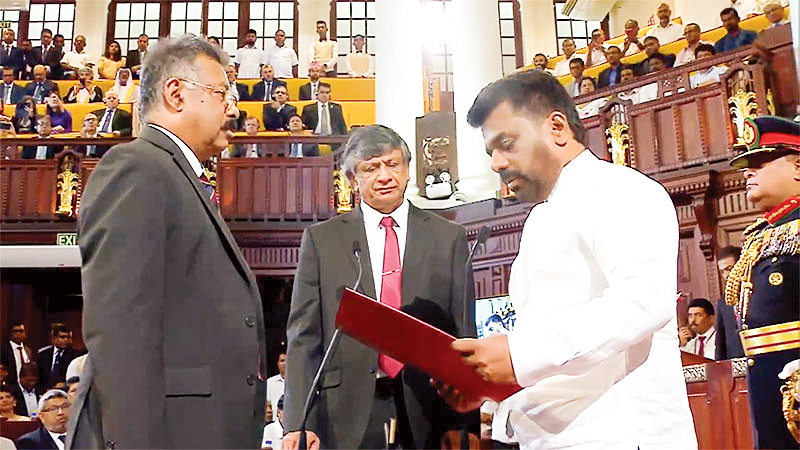
by Geewananda Gunawardana
The last election was a momentous landmark in Sri Lanka’s history. It is an important first step in the right direction. Political analysts and historians will dissect the results for years to come. The two-toned map that was flashed all over media, raises major questions that are relevant in taking the next step: what is the reason for such a marked difference in opinions about the direction the country should take? Are the voters well informed?
What is the extent of the participation in the democratic process? We may not have definitive answers until the academics start authoring their theses in years to come. This essay suggests that our collective experience over millennia that shaped our culture also plays a key role in shaping our political psyche. The proposition is that our entrenched reverence of the elite, forces us to overlook their dark side and leave our future in their hands.
Monarchs ruled us for millennia, and it ended with the Kandyan Nayak Dynasty. Then the European colonizers ruled us for 450 years. After independence, it was the elite that ruled the country. Pluralist democracy is a relatively new concept to us. The centuries old subservience to monarchy is engraved in our psyche so deeply that it has become a national trait to submit ourselves to the whims of the elite unconditionally. For example, having a certain family name is enough to address one with absurd honorifics when they have no redeeming qualities of their own.
The role of equally absurd caste system in politics and the Buddhist monastic order is another. The last election will go down in history as the first step, albeit a small one, towards wiping out the scourge of reverence to elitism from the face of this country. However, most of us fail to untangle the complex web tying elitism, corruption, and the all-important economy together.
If the dictionary defines elite as the richest, most powerful, best educated, or best trained group in a society, why should it carry such a negative connotation, is a fair question to ask. Seeing the electoral map that emerged on September 22nd, and its eerie similarity to another one that caused much discontent in the past, it becomes evident that, despite being the victims of elitism, most people have not found the answer to this question.
Worse yet, they do not realise that they are caught in a cyclic process that prevents them from finding the answer. Seeing things as they really are or knowing what impediments exist is an important part in the way to emancipation, be it political, social, or spiritual.
The term elite becomes a negative attribute under several conditions: if that select group of people came to wealth, power, or intellect by unjust, unethical means; if they are out of touch with the needs and concerns of the ordinary people; and if they start exerting their influence and authority over the others to deprive their basic rights. I may draw ire and criticism for writing about elitism when the country is facing a major economic crisis. I beg to differ; it may look complex, but all our problems began with our indifference to elitism for so long.
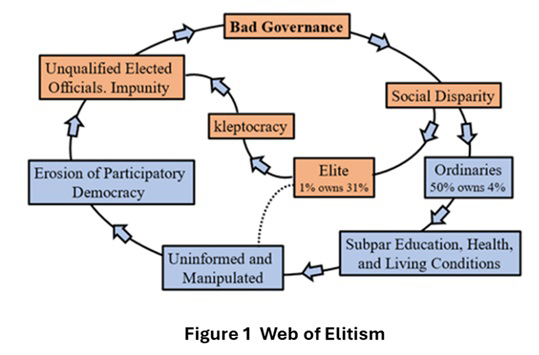 Based on most recent data (https://wid.world/country/sri-lanka/) the top one percent of the Sri Lankan population owns 31% of the nation’s wealth. That figure for the top 10% of the population is a staggering 64%. This is while the bottom 50% of the population’s wealth is a measly 4%. Once vibrant middle class has disappeared. The income disparity follows the same trend and, as a result, Sri Lanka ranks among the top countries with worst income and wealth distribution.
Based on most recent data (https://wid.world/country/sri-lanka/) the top one percent of the Sri Lankan population owns 31% of the nation’s wealth. That figure for the top 10% of the population is a staggering 64%. This is while the bottom 50% of the population’s wealth is a measly 4%. Once vibrant middle class has disappeared. The income disparity follows the same trend and, as a result, Sri Lanka ranks among the top countries with worst income and wealth distribution.
This is a major roadblock to economic development of a country and a cause for the breakdown of social structure. We need not look far; Sri Lanka is a prime example. While there is no ideal income or wealth distribution ratio, the impact of this inequality is out there for everyone to see. The few privileged dominate the political power and economy. Their superior purchasing power determines the cost of goods and services in the market.
Not having such resources, the underprivileged, a euphemism for the ordinary people, ends up with limited access to food, shelter, clothing, education, healthcare, and many other essentials. The heart wrenching irony is that those who break their back to keep the economy going – farmers, estate, and domestic workers, for example – end up at the bottom of that scale. Sadly, it is those destitute who lack access to information that become easy pray to schemers with dubious political agendas. We must reject attaching labels with potentially negative connotations to movements aimed at correcting such injustices or inequalities.
Unfortunately, our cultural and religious outlook stand in the way of realising the cause and effect of this vicious cycle. The truth is that there is nothing wrong with being rich. No one denies that, and in a just society, everyone has the right to aspire to be rich and powerful as well. Therein lies the multibillion question: Did our rich and powerful earn these rights in a just and equitable manner? Our cultural and religious thinking has compelled us to think that the rich got rich because they have accumulated good karma in previous lives.
The not so fortunate suffer due to their bad karma, and there is nothing they can do about it except for accumulating good karma and hope for better things in the next life. What a load of hog wash? We do not and should not oppose or envy the accumulation of wealth by ethical and legal means. That is necessary for the economic development of the country. The problem arises when most people do not have access to three square meals let alone access to the economy while the elite enjoy all manner of luxuries at the expense of the poor. Supermarket shelves may be laden with luxury goods, but if the ordinary citizen cannot afford them, that has nothing to do with karma. That is the result of bad governance. It is that injustice that we abhor, not someone’s wealth.
Instead, we should be asking if any of the following activities are involved in the rich and powerful gaining such privileges: bribery, extortion, cronyism, nepotism, parochialism, patronage, influence, graft, and embezzlement. If they did, there are three words to describe their actions: Corruption, Corruption, and Corruption. No explanations necessary, Sri Lanka’s elite is synonymous with corrupt, except for a handful of true entrepreneurs. No matter how good the policies are, without the eradication of corruption, there is no way to restore the economy or the social order. In Sri Lankan context, elite, corruption, bad governance, and the collapse of economy and social structure are the same. How they are interdependent and intertwined is illustrated in Figure 1. That is the reason that eradication of corruption has become the battle cry. But how well has the population understood that message? The answer lies in the electoral map that emerged on the 22nd. Not very well, is the answer, and that must be changed before taking the next step.
Fortunately, just enough people understood the facts. That is a small step in the right direction; however, note that 7.8 million thought otherwise. What is important is that without more people getting this message, or understanding the true cause of all our problems, there is no way to take the second step. As history attests, we could very well end up taking back that small step. That is why it must be the responsibility of all sensible citizens of the country to explain it clearly to their fellow citizens. But have no illusions, look at the figure again, the same evil forces will stand in their way.
At the last election, 3.5 million eligible voters stayed home; it is true that some of them have left the country. It is not that those who skipped voting are immune from the misery the country is going through, but they have lost faith in the political system. That erosion of participatory democracy is the goal of the elite, see the figure, and they have accomplished it.
Those who skipped voting must be convinced that exercising their hard-won democratic right is not only a civic duty, but that is also the only way to salvage the country. Statistics are not available yet, but if the women were compelled to think that they have no part in politics and stayed home, they must be made aware that economic or social development cannot be accomplished without the participation of half the population. Furthermore, they have a right to participate in the economy and benefit from it.
This is especially so when they and their young children are the worst affected by the crisis. Therefore, staying away is not the solution.
The other alarming fact emerging from that map is the geographic distribution of the populations that lacks this understanding. It is unfortunate, and scary at the same time, but that tells us that there are other organized forces in operation that either hide or downplay the evils of corruption and promote other agenda. These forces arise from sources that use racial, religious, caste, or ideological divisions for their own agenda. It must be made clear to those who fall for such tactics that the effect of corruption and bad governance transcend all other human-caused divisions. The limited access to food, shelter, clothing, education, healthcare, and other essentials effect people of all religions, races, casts, trades, and political affiliations. The only exception is the elite.
We must accept the fact that there is a group of people that simply do not want to hear the truth. Their worldview is limited to their own experience. They neither see it, nor admit it that change is a universal reality. Those are the ones resistant to change, unadaptable, obstinate, or inflexible; Hanamiti karaya, traditionally called, or dinosaurs in modern parlance. Recall those who predicted that doomsday would arrive following the election? That shows that there are academic elites as well, let us not forget how the fertilizer saga and the covid treatment unfolded. They must be left alone; in a changing, increasingly educated society, they will become irrelevant. Nobody wants to revive the feudal system or re-establish the Kandyan Nayak dynasty.
The subject of corruption has been discussed and dissected to death in all forums ranging from academic journals to all formats of media, to political rallies. Yet, the message has not reached a large segment of the population in a way they can relate to. Explaining it in terms accessible to all is everyone’s responsibility, and that may be the way to bridge that red and yellow divide of the map. In that respect, at the risk of being condemned to eternal damnation, I lay some of the blame on our religious leaders for not enlightening their followers.
All religions are based on morals and ethics; is there any religion that does not condemn bribery, extortion, cronyism, nepotism, parochialism, patronage, influence, graft, and embezzlement? If so, shouldn’t all religions condemn corruption instead of bestowing blessings on corrupt and unethical elite for personal gains? Shouldn’t the religious leaders teach us the significance of putting our lives in order, here and now, and that the path to liberation is not a bartering system?
The US president John F Kennedy’s words should resonate at this moment: “Ask not what your country can do for you – ask what you can do for your country.” Let us not forget that we have not done our part for the country; with our subservient psyche, we condoned corruption until we became destitute. We waited until we could not feed our children. Some of our most important responsibilities are to elect capable leaders who are qualified to do the job, give them enough room to maneuver, and hold them accountable.
If we are committed to elect our leaders based on their merits, as we demonstrated on the 21st, that sends a strong warning to all political parties: if you wish to win, assure that your nominees are qualified and are not tainted by corruption. Do not try to hide criminal and corrupt individuals behind the party list. There should be democracy and meritocracy within the political parties, they should not continue to be subservient to elitism.
We took the first step in the right direction, but it will take many such steps before we reach our goal, a prosperous and happy nation. Our country had been a kleptocracy, a society ruled by people who use their power to steal their country’s resources. And that is the source of all our problems. The challenge the nation faces is that the same people use all manner of trickery to deceive us and hide the truth. They are good at it; the election results demonstrate that two thirds of the voters did not understand the root cause of the problem. This essay may be an exercise in analyzing the root cause, but that does not serve the purpose unless the message is understood at the grassroot level, throughout the country. For the democracy to function, the voters must be well informed.
To put it bluntly, the message they need to hear is “do not let the corrupt politicians, old or new, left or right leaning, from the North or South, come back to power.” Let us look at it this way: how can the corrupt eradicate corruption? Or why should they? For example, during the last two years, when the nation was on starvation rations, the siphoning of nations wealth away from its coffers continued. Through endless political deals, they covered up their corrupt acts and protected criminals. Are those responsible actors, saviours or traitors? Is that the way to recovery? Do we want corrupt leaders to continue to exploit us? The ill effects of corruption cross party lines, race, religion, caste, and all other divisions.
We are all victims, except the elite. If corruption is eradicated, that will open the way for sensible economic policies to work. That in turn will allow us to solve other social problems; in fact, most problems will go away. It does not happen the other way around. We must end our servitude to the corrupt elite if we must escape from this vicious cycle. The mantra that will save us from the evil is “Do not elect or reelect corrupt politicians.” We should make it a practice to recite it a few times a day.
Opinion
Labour exploitation at Sri Lankan audit firms: A regulatory blind spot

A recent tragedy of a young audit professional has prompted a nationwide conversation on Sri Lanka’s audit work culture. What was initially described as an untimely passing has since raised serious concerns about excessive workloads, workplace responsibility, and the well-being implications of the professional pressure. Accordingly, this article seeks to explore prevailing audit culture and professional practices in Sri Lanka, and highlights areas where thoughtful reform may be considered
The Evolution of Accounting and Finance Education in Sri Lanka
Over the past several decades, accounting and finance education in Sri Lanka has evolved from a narrowly technical field into a recognised professional discipline. Universities and professional institutions now offer specialised programmes aligned with international standards, covering accounting, finance, auditing, taxation, and corporate governance.
Professional bodies have modernised curricula by incorporating international accounting and auditing standards, ethics, and governance related content. As a result, Sri Lankan accounting graduates develop both technical competence and professional judgment, enabling them to compete successfully in multinational corporations, international audit networks, and global financial institutions, both locally and overseas.
This progress reflects a broader national commitment to professional excellence. Accounting and finance are now recognised as disciplines central to economic governance, market transparency, investor confidence, and public trust.
Why Professional Qualifications Matter
Professional qualifications often act as gateways to the corporate world. Professional pathways in Sri Lanka include qualifications offered by the Institute of Chartered Accountants of Sri Lanka (ICASL), the Association of Chartered Certified Accountants (ACCA), the Chartered Institute of Management Accountants (CIMA), the Institute of Chartered Professional Managers (ICPM), and the Association of Accounting Technicians (AAT).
For employers, these qualifications signal technical competence, ethical compliance, and completion of structured practical training. For students, they represent professional legitimacy, career security, and upward mobility.
Therefore, families and students invest significant time and resources in this pathway, reflecting its importance, often exceeding the practical value of a degree alone. Qualified professionals trained through this system contribute to both Sri Lanka’s domestic financial sector and overseas markets.
The Growth and Public Role of the Audit Sector
Alongside educational development, Sri Lanka’s audit sector has expanded in scale and influence as businesses have become more complex and globally connected. Audit firms now operate across the listed companies.
Audit firms perform an important public interest function by assuring the credibility of financial information, supporting investor confidence, and underpinning regulatory compliance and corporate governance. Beyond service delivery, they also act as professional institutions that determine norms and train future leaders in accounting and finance.
As a result, internal practices within audit firms, including organisational culture, workload expectations, remuneration, and supervision, have implications that extend beyond individual workplaces, influencing professional judgment, audit quality, and long-term public trust.
The Dream of Becoming a Chartered Accountant
For thousands of young Sri Lankans, becoming a Chartered Accountant represents one of the most respected professional ambitions. It is widely viewed as a symbol of discipline, resilience, and upward mobility. Students enter the pathway with the expectation that years of study, sacrifice, and perseverance will ultimately lead to professional recognition and stability.
A defining feature of this pathway is mandatory practical training. To qualify, students must complete a prescribed period of supervised training, most commonly within audit firms. This requirement is designed to bridge theory and practice, ensuring that academic knowledge is reinforced through real world exposure, professional supervision, and ethical decision making.
In practice, securing a training position is often the most decisive and competitive stage of the journey. Without completing this training, the qualification remains unattainable regardless of examination success. Therefore, audit firms are not only employers but also essential gatekeepers to professional advancement, controlling access to qualifications, experience, and future career opportunities.
Where the System Begins to Strain
This structure, while well intentioned, creates a significant imbalance of power. Trainees depend on audit firms not only for income, but also for the completion of their professional qualification. In such circumstances, questioning workloads, working hours, or basic welfare provisions can feel risky. Many trainees remain silent, fearing that concerns could delay qualification or affect future career prospects.
Audit work is demanding worldwide, particularly during peak reporting periods. Long hours, tight deadlines, and intense fieldwork are widely recognised features of the profession. However, the concern arises when these pressures become normalised without sufficient regard for rest, safety, remuneration, or minimum working conditions.
Training allowances and entry-level remuneration in audit firms are often modest relative to workloads and expectations, with trainee allowances typically ranging from LKR 10,000 to 20,000 per month, despite daily working hours that frequently extend 8 to 12 hours. Many trainees accept low pay and long hours as temporary sacrifices in pursuit of long-term professional goals. Over time, when such conditions are justified as “part of training,” unhealthy practices risk becoming normalised and embedded within professional culture.
Such environments may still produce technically competent professionals, but at the cost of burnout, ethical fatigue, and reduced long term engagement with the profession.
A Regulatory Blind Spot
In Sri Lanka, audit firms are regulated by CA Sri Lanka with respect to professional standards, ethical conduct, examinations, and prescribed training requirements, thereby playing an important role in maintaining the profession’s credibility and international standing. This is a professional regulation.
However, professional regulation serves a different purpose from organisational or workplace oversight. While audit firms are subject to general labour laws, there is no audit specific public oversight mechanism that systematically reviews audit firms’ internal governance, remuneration structures, or training environments.
This creates a regulatory asymmetry. Audit firms scrutinise others under detailed regulatory frameworks, yet their own internal systems are not subject to equivalent public review. Given the large population of trainees with limited bargaining power, this gap may affect professional sustainability, audit quality, and public trust.
Following a recent tragedy involving a trainee, CA Sri Lanka issued a public condolence statement acknowledging stakeholder concerns and confirming that the circumstances are under review.
Looking Ahead
To strengthen the long-term sustainability of the audit profession, Sri Lanka may consider the following measures:
* Establish a dedicated public oversight body for audit firms, with responsibility for monitoring firm level governance, training environments, and organisational practices, complementing existing professional regulation.
* Introduce transparency reports for audit firms, requiring disclosure of governance structures, quality control systems, training arrangements, and continuing professional education practices.
* Apply modern labour governance principles, drawing on modern slavery frameworks used internationally that emphasise prevention, transparency, and early identification of labour related risks.
* Improve visibility of trainee remuneration and workload practices, particularly where mandatory training creates structural dependency.
* Strengthen coordination between professional self-regulation and public oversight, ensuring that professional excellence is supported by sustainable and accountable organisational environments.
These measures do not imply illegality or misconduct. Rather, they reflect an opportunity to align Sri Lanka’s audit profession with evolving global norms that prioritise transparency, dignity, and long-term public confidence. If audit firms are entrusted with holding others accountable, the systems governing them must also reflect responsibility toward the people who sustain the profession.
by Sulochana Dissanayake
Senior Lecturer at Rajarata University of Sri Lanka | Sessional Academic & PhD Candidate at Queensland University of Technology (QUT)
and
by Prof. Manoj Samarathunga
Faculty of Management Studies
Rajarata University of
Sri Lanka Mihintale
Opinion
Buddhist insights into the extended mind thesis – Some observations

It is both an honour and a pleasure to address you on this occasion as we gather to celebrate International Philosophy Day. Established by UNESCO and supported by the United Nations, this day serves as a global reminder that philosophy is not merely an academic discipline confined to universities or scholarly journals. It is, rather, a critical human practice—one that enables societies to reflect upon themselves, to question inherited assumptions, and to navigate periods of intellectual, technological, and moral transformation.
In moments of rapid change, philosophy performs a particularly vital role. It slows us down. It invites us to ask not only how things work, but what they mean, why they matter, and how we ought to live. I therefore wish to begin by expressing my appreciation to UNESCO, the United Nations, and the organisers of this year’s programme for sustaining this tradition and for selecting a theme that invites sustained reflection on mind, consciousness, and human agency.
We inhabit a world increasingly shaped by artificial intelligence, neuroscience, cognitive science, and digital technologies. These developments are not neutral. They reshape how we think, how we communicate, how we remember, and even how we imagine ourselves. As machines simulate cognitive functions once thought uniquely human, we are compelled to ask foundational philosophical questions anew:
What is the mind? Where does thinking occur? Is cognition something enclosed within the brain, or does it arise through our bodily engagement with the world? And what does it mean to be an ethical and responsible agent in a technologically extended environment?
Sri Lanka’s Philosophical Inheritance
On a day such as this, it is especially appropriate to recall that Sri Lanka possesses a long and distinguished tradition of philosophical reflection. From early Buddhist scholasticism to modern comparative philosophy, Sri Lankan thinkers have consistently engaged questions concerning knowledge, consciousness, suffering, agency, and liberation.
Within this modern intellectual history, the University of Peradeniya occupies a unique place. It has served as a centre where Buddhist philosophy, Western thought, psychology, and logic have met in creative dialogue. Scholars such as T. R. V. Murti, K. N. Jayatilleke, Padmasiri de Silva, R. D. Gunaratne, and Sarathchandra did not merely interpret Buddhist texts; they brought them into conversation with global philosophy, thereby enriching both traditions.
It is within this intellectual lineage—and with deep respect for it—that I offer the reflections that follow.
Setting the Philosophical Problem
My topic today is “Embodied Cognition and Viññāṇasota: Buddhist Insights on the Extended Mind Thesis – Some Observations.” This is not a purely historical inquiry. It is an attempt to bring Buddhist philosophy into dialogue with some of the most pressing debates in contemporary philosophy of mind and cognitive science.
At the centre of these debates lies a deceptively simple question: Where is the mind?
For much of modern philosophy, the dominant answer was clear: the mind resides inside the head. Thinking was understood as an internal process, private and hidden, occurring within the boundaries of the skull. The body was often treated as a mere vessel, and the world as an external stage upon which cognition operated.
However, this picture has increasingly come under pressure.
The Extended Mind Thesis and the 4E Turn
One of the most influential challenges to this internalist model is the Extended Mind Thesis, proposed by Andy Clark and David Chalmers. Their argument is provocative but deceptively simple: if an external tool performs the same functional role as a cognitive process inside the brain, then it should be considered part of the mind itself.
From this insight emerges the now well-known 4E framework, according to which cognition is:
Embodied – shaped by the structure and capacities of the body
Embedded – situated within physical, social, and cultural environments
Enactive – constituted through action and interaction
Extended – distributed across tools, artefacts, and practices
This framework invites us to rethink the mind not as a thing, but as an activity—something we do, rather than something we have.
Earlier Western Challenges to Internalism
It is important to note that this critique of the “mind in the head” model did not begin with cognitive science. It has deep philosophical roots.
Ludwig Wittgenstein
famously warned philosophers against imagining thought as something occurring in a hidden inner space. Such metaphors, he suggested, mystify rather than clarify our understanding of mind.
Similarly, Franz Brentano’s notion of intentionality—his claim that all mental states are about something—shifted attention away from inner substances toward relational processes. This insight shaped Husserl’s phenomenology, where consciousness is always world-directed, and Freud’s psychoanalysis, where mental life is dynamic, conflicted, and socially embedded.
Together, these thinkers prepared the conceptual ground for a more process-oriented, relational understanding of mind.
Varela and the Enactive Turn
A decisive moment in this shift came with Francisco J. Varela, whose work on enactivism challenged computational models of mind. For Varela, cognition is not the passive representation of a pre-given world, but the active bringing forth of meaning through embodied engagement.
Cognition, on this view, arises from the dynamic coupling of organism and environment. Importantly, Varela explicitly acknowledged his intellectual debt to Buddhist philosophy, particularly its insights into impermanence, non-self, and dependent origination.
Buddhist Philosophy and the Minding Process
Buddhist thought offers a remarkably sophisticated account of mind—one that is non-substantialist, relational, and processual. Across its diverse traditions, we find a consistent emphasis on mind as dependently arisen, embodied through the six sense bases, and shaped by intention and contact.
Crucially, Buddhism does not speak of a static “mind-entity”. Instead, it employs metaphors of streams, flows, and continuities, suggesting a dynamic process unfolding in relation to conditions.
Key Buddhist Concepts for Contemporary Dialogue
Let me now highlight several Buddhist concepts that are particularly relevant to contemporary discussions of embodied and extended cognition.
The notion of prapañca, as elaborated by Bhikkhu Ñāṇananda, captures the mind’s tendency toward conceptual proliferation. Through naming, interpretation, and narrative construction, the mind extends itself, creating entire experiential worlds. This is not merely a linguistic process; it is an existential one.
The Abhidhamma concept of viññāṇasota, the stream of consciousness, rejects the idea of an inner mental core. Consciousness arises and ceases moment by moment, dependent on conditions—much like a river that has no fixed identity apart from its flow.
The Yogācāra doctrine of ālayaviññāṇa adds a further dimension, recognising deep-seated dispositions, habits, and affective tendencies accumulated through experience. This anticipates modern discussions of implicit cognition, embodied memory, and learned behaviour.
Finally, the Buddhist distinction between mindful and unmindful cognition reveals a layered model of mental life—one that resonates strongly with contemporary dual-process theories.
A Buddhist Cognitive Ecology
Taken together, these insights point toward a Buddhist cognitive ecology in which mind is not an inner object but a relational activity unfolding across body, world, history, and practice.
As the Buddha famously observed, “In this fathom-long body, with its perceptions and thoughts, I declare there is the world.” This is perhaps one of the earliest and most profound articulations of an embodied, enacted, and extended conception of mind.
Conclusion
The Extended Mind Thesis challenges the idea that the mind is confined within the skull. Buddhist philosophy goes further. It invites us to reconsider whether the mind was ever “inside” to begin with.
In an age shaped by artificial intelligence, cognitive technologies, and digital environments, this question is not merely theoretical. It is ethically urgent. How we understand mind shapes how we design technologies, structure societies, and conceive human responsibility.
Buddhist philosophy offers not only conceptual clarity but also ethical guidance—reminding us that cognition is inseparable from suffering, intention, and liberation.
Dr. Charitha Herath is a former Member of Parliament of Sri Lanka (2020–2024) and an academic philosopher. Prior to entering Parliament, he served as Professor (Chair) of Philosophy at the University of Peradeniya. He was Chairman of the Committee on Public Enterprises (COPE) from 2020 to 2022, playing a key role in parliamentary oversight of public finance and state institutions. Dr. Herath previously served as Secretary to the Ministry of Mass Media and Information (2013–2015) and is the Founder and Chair of Nexus Research Group, a platform for interdisciplinary research, policy dialogue, and public intellectual engagement.
He holds a BA from the University of Peradeniya (Sri Lanka), MA degrees from Sichuan University (China) and Ohio University (USA), and a PhD from the University of Kelaniya (Sri Lanka).
(This article has been adapted from the keynote address delivered
by Dr. Charitha Herath
at the International Philosophy Day Conference at the University of Peradeniya.)
Opinion
We do not want to be press-ganged
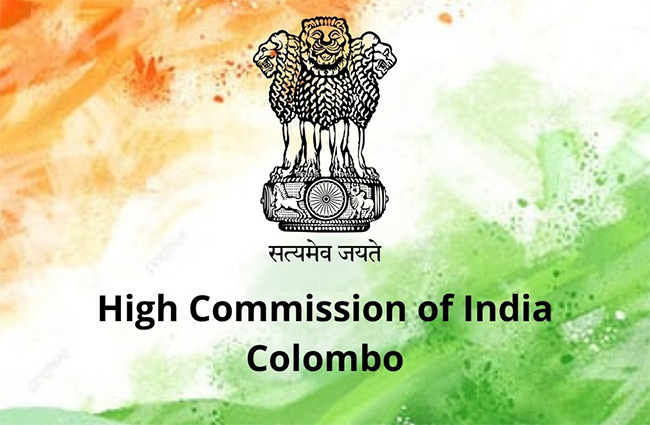
Reference ,the Indian High Commissioner’s recent comments ( The Island, 9th Jan. ) on strong India-Sri Lanka relationship and the assistance granted on recovering from the financial collapse of Sri Lanka and yet again for cyclone recovery., Sri Lankans should express their thanks to India for standing up as a friendly neighbour.
On the Defence Cooperation agreement, the Indian High Commissioner’s assertion was that there was nothing beyond that which had been included in the text. But, dear High Commissioner, we Sri Lankans have burnt our fingers when we signed agreements with the European nations who invaded our country; they took our leaders around the Mulberry bush and made our nation pay a very high price by controlling our destiny for hundreds of years. When the Opposition parties in the Parliament requested the Sri Lankan government to reveal the contents of the Defence agreements signed with India as per the prevalent common practice, the government’s strange response was that India did not want them disclosed.
Even the terms of the one-sided infamous Indo-Sri Lanka agreement, signed in 1987, were disclosed to the public.
Mr. High Commissioner, we are not satisfied with your reply as we are weak, economically, and unable to clearly understand your “India’s Neighbourhood First and Mahasagar policies” . We need the details of the defence agreements signed with our government, early.
RANJITH SOYSA
-

 Business1 day ago
Business1 day agoKoaloo.Fi and Stredge forge strategic partnership to offer businesses sustainable supply chain solutions
-

 Business5 days ago
Business5 days agoDialog and UnionPay International Join Forces to Elevate Sri Lanka’s Digital Payment Landscape
-

 News5 days ago
News5 days agoSajith: Ashoka Chakra replaces Dharmachakra in Buddhism textbook
-

 Features5 days ago
Features5 days agoThe Paradox of Trump Power: Contested Authoritarian at Home, Uncontested Bully Abroad
-

 Features5 days ago
Features5 days agoSubject:Whatever happened to (my) three million dollars?
-
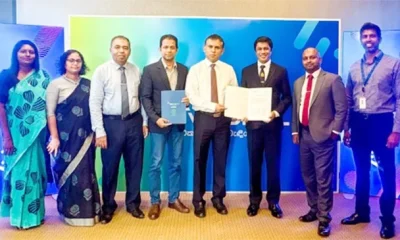
 Business1 day ago
Business1 day agoSLT MOBITEL and Fintelex empower farmers with the launch of Yaya Agro App
-
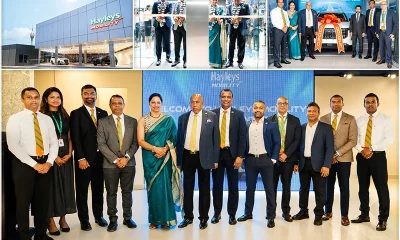
 Business1 day ago
Business1 day agoHayleys Mobility unveils Premium Delivery Centre
-

 News5 days ago
News5 days agoLevel I landslide early warnings issued to the Districts of Badulla, Kandy, Matale and Nuwara-Eliya extended













